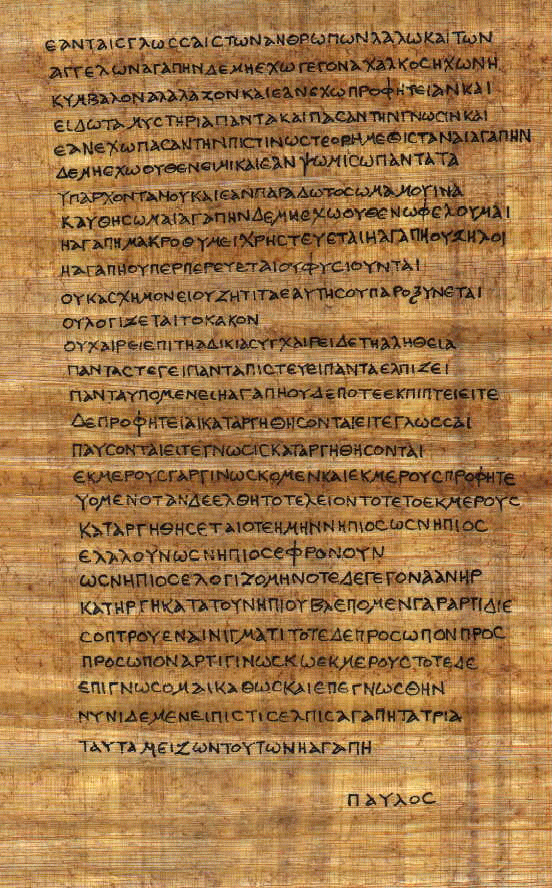
It was the first sunny spring day in Ephesus in the year 3817 by Paul’s Jewish calendar. Last week was the 27th Passover since Jesus ascended to the Father. Paul sat in the courtyard of his friends Prisca and Aquila to enjoy the sun while writing a letter to his friends in Corinth. Six years ago, Prisca and Aquila had come to Ephesus with Paul from Corinth where they had taken refuge after being expelled by the Emperor Claudius from Rome. They had helped Paul establish the young church there. Now Corinth occupied his thoughts anew. Prisca had commissioned a new convert, Apollos, to oversee the Corinthians but the handsome and charismatic young man was having problems. Paul had written his first letter to the Corinthians about three months ago to offer guidance but a letter he just received from Stephanus disturbed him greatly. The Corinthians had been too well caught up in the vices of the city and had perverted the agape meal to one of gluttony and licentious behavior. His first letter had admonished them and reminded them to avoid the company of the immoral elements of the city. Now he has learned that they completely missed the point and refuse to administer to the salvation of sinners. Instead they have formed various groups, each claiming loyalty to either him, or Apollos, or Peter and fighting over who was best and who was more proficient at "talking in tongues" and prophecying. He must now remind them in this second letter of the true purpose of the Gospel. He must remind them that the Way offers faith and hope to the oppressed but also that the most important thing is love.
Paul dipped his reed into the lampblack ink and wrote on his papyrus scroll.

And though I have the gift of prophecy, and understand all mysteries,
And all knowledge; and though I have all faith so that I could remove mountains, and have not love, I am nothing.
And if I give away all in food all my goods, and if I deliver up my body to be burned, but have not love, it profits me nothing.
Love has patience, and is kind. Love is not envious. Love is not vainglorious and not puffed up.
Acts not unseemly, seeks not the things of its own, is not easily provoked, Thinks no evil.
Rejoices not in iniquity, but rejoices in the truth.
All things bears, all things believes, all things hopes, all things endures.
Love never fails, but where there are prophecies, They shall fail. Where there are tongues, they shall cease, where there is knowledge, it shall vanish away.
For we know in part, and we prophecy in part.
For when may come that which is perfect, then that in part shall be done away.
When I was a child, I spoke like a child, I understood like a child, I thought like a child; but when I became a man, I put away the things of a child.
For we see now through a glass darkly, but then face to face, now I know in part, but then shall I know, even as also I am known.
And now abides faith, hope, and love, these three; but the greatest of these is love.